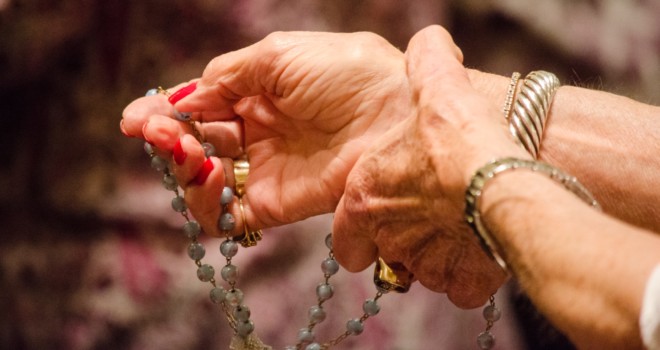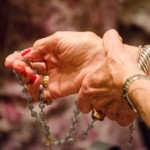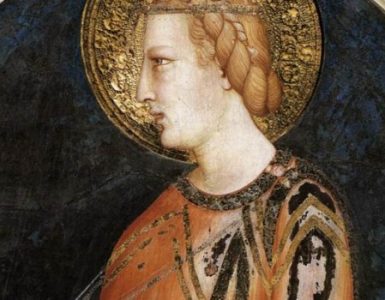“When you were younger, you used to dress yourself and go where you wanted; but when you grow old, you will stretch out your hands, and someone else will dress you and lead you where you do not want to go.”
– John 21: 18
I perused the weathered black-and-white photographs from my father’s childhood alongside him. He had become nostalgic as he grew older, nearing retirement age, and losing his family members one by one. The only sibling remaining for him was my Uncle Paul — to my father, his lifeline to kin and legacy alike.
Many months ago, we decided to travel the thirty-some odd miles to Ohio to visit Uncle Paul. I was heavily pregnant with our third baby and in transition between an old house and the one we’d purchased but hadn’t been able to settle into yet. The timing seemed right to visit the sick and homebound, especially of our family.
The drive to Ohio was
silent but calm. I knew my father, in his introverted ways, was likely musing
on the reality that his only living brother was dying. I didn’t know this from
personal experience, of course, but I imagined the pain of knowing that life
cycles from the new to the old and back again, without our consent or even
desire. It is just the natural way of things.
Baby pictures of my dad
with his older brothers conjured a prick of my own heart, as I understood that
my parents’ generation is the one aging now. They were once young, too. I
rubbed my swelling belly, acknowledging that one day, she too, will grow old
and die, should life give her long years.
Uncle Paul was jovial but
clearly struggling. He could not walk without great effort, couldn’t eat
without assistance, and sat for most of the day in his easy chair facing the
television with Bonanza reruns looping in the background for noise. He and my
father reminisced about their childhood and youth, occasionally bursting into a
raucous laughter that only the two of them shared. I was an observer, merely
watching the love between them unfold.
Jesus chose to be born into humility as a helpless infant. God willed Himself to be cared for by adults, to be nurtured and held and changed and nursed by the bodies of a man and woman. This helplessness is truly a form of humility, and it is for us, too. I think it’s because we are born without autonomy, and this is also how we die in old age.
I’ve been in enough
nursing homes to watch the elderly suffer their own forms of humiliation.
Usually it begins with the gradual loss of independence – car keys taken away
by grown children, the inability to play the piano because of arthritis, poor
eyesight that disallows them to enjoy reading.
After a while, some may
find in-home health care to assist them with daily tasks, such as bathing,
dressing, walking, and feeding. It’s not unlike infancy. John the Evangelist
knew this well when he wrote that youth and old age are nearly the same. We
enter the world without the capacity to care for ourselves, and we exit this
life at the mercy of other people’s decisions.
If we are spiritually
mature, if we have gained any wisdom in the short span we’re on the earth, we
will learn as we lay dying that the loss of independence was always an
invitation to surrender our need to control and move and act into the hands of
a Providential God who asks us to take our own journeys to Calvary with Him.
This passivity is not a true loss, but is rather eternal gain.
Jesus Himself chose to be
handed over to Pontius Pilate. From that moment onward, He was the object of
whatever men chose to do to Him. His Passion is really our mission, too, if we
allow it to take hold of us when we lose our grip on what is material and
tangible and earthly. It seems to me that aging, despite the inevitable
suffering and pain, can quite possibly be the means to our eternal legacy.
The manner in which we
acquiesce to our death can actually be an aspect of living. Dying is the final
act of life, after all. When my father and I gave Uncle Paul a hug goodbye
after an afternoon of idleness and chitchat, I knew it would be the last time I’d
see him alive. I think my dad knew that, too. But the drive home was
surprisingly peaceful, even though a lingering heaviness filled the air between
us as we recapped the afternoon.
Time spent in relationship is never wasted time. My father knew that, and I did, too. When we return to the Source of our life-breath, our expiration is merely a beginning. There are always deaths and resurrections throughout this pilgrimage on earth. The beauty of death can also be the beauty of life.
✠
Photo by Christopher Riggs on Unsplash












